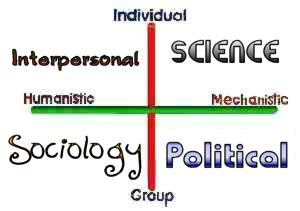There are many paradoxes in life and many of these are concentrated in the realm of health and medicine (a major sub-division of life and death).
For decades the link between poverty and standards and quality of health has been recognised and politicised in the media and policy. Just this past week was news of a Bill to make the eradication of child poverty a legal obligation not something that can be the political objective at the start of a Government and then cast aside.
Many things are relative and poverty is often described in this way applying to individuals, social classes, communities, regions and whole nations. Using the domains of Hodges' model what reflections does this prompt? Let us see:
SCIENCES: We tend to think of economics and the definition of poverty in materialistic and monetary terms. In this domain things become things. Processes and much more besides - people are objectified and commodified: prostitution, child labour, child soldiers, people trafficking - individuals as numbers at a certain time, certain place. The person reduced to a process - service.
On the sciences front in an explicit way our poverty of knowledge ('education, education, education') becomes apparent as we try to place value on the environment and not only our personal use, but national use of the green and blue. A new economics is indeed called for.
 In the current 2009 Reith Lectures (closing lecture this week) Professor Michael Sandel presents A New Citizenship. Within these lectures Prof Sandel explains how fees change services, values and expectations with examples of child care and blood supply in health care. Organisations have to be aware of their assets with laptops, PCs and umpteen other pieces of equipment and resource possessed of their own unique ID.
In the current 2009 Reith Lectures (closing lecture this week) Professor Michael Sandel presents A New Citizenship. Within these lectures Prof Sandel explains how fees change services, values and expectations with examples of child care and blood supply in health care. Organisations have to be aware of their assets with laptops, PCs and umpteen other pieces of equipment and resource possessed of their own unique ID.Yes, according to my interpretation of Hodges' model the points raised here belong in the political domain, and yet we are so befuddled, intoxicated and to a certain extent deluded with the sciences, technology and material things (de-vices?) that in contemplating poverty we must extend the political realm. ...
From now on the public's attitude to science as individuals and families, communities and nations is going to be critical to change our understanding and more importantly our experience of poverty - material, relative or otherwise.
Image source: BBC
Additional links:
The Simonyi Professorship: hair for the Public Understanding of Science at Oxford University
'Poverty' on W2tQ
Sciences care (knowledge) domain links resource
Political care (knowledge) domain links resource









